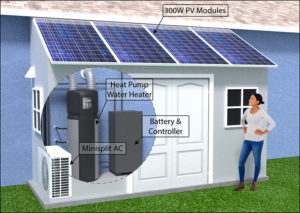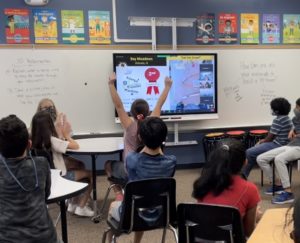Neither the cloudy forecast nor pandemic concerns were enough to discourage the teams that came together on Saturday, April 30th for the 2022 EnergyWhiz event!
EnergyWhiz is a daylong celebration of sustainable solutions, creativity and engineering skills, where students from throughout Florida came together to showcase their renewable energy projects. This year, elementary, middle, and high school teams designed and built everything from solar-powered electric vehicles to sun-powered cookers and “green” homes for pets and other critters to showcase and share at EnergyWhiz.
The event, presented this year by sponsor Florida Power and Light Company, is hosted each year at the FSEC Energy Research Center, a research institute at the University of Central Florida, located at the Cocoa Campus of the UCF and Eastern Florida State College.
This year’s EnergyWhiz competitors participated in one of six categories: Junior Solar Sprint, Critter Comfort Cottage, Energy Inspired Art, Energy Innovations, Energy Transfer Machine and the Solar Energy Cook-off. Each competition category incorporates some type of energy efficiency measure or renewable energy technology.



